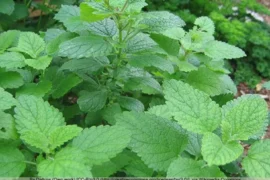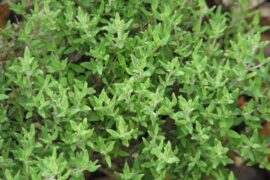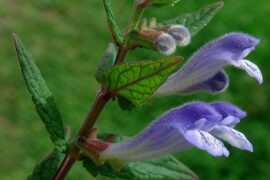In our fast-paced world, where health fads come and go, it’s refreshing to rediscover a remedy with roots that stretch back through centuries. Elderberry, derived from the small, dark berries of the Sambucus tree, is one such remedy that has garnered attention for its immune-boosting properties. The small, round berries grow in clusters and are popularly used in in traditional medicine and culinary applications. As we navigate through the changing seasons and an ever-evolving landscape of health challenges, elderberry stands out as a natural ally for modern immunity.

Table of Contents
ToggleThe Rich History of Elderberry
Elderberry, {Sambucus nigra}, has been used for thousands of years, with records of its medicinal benefits dating back to ancient Egypt, where it was revered for its healing properties. Hippocrates devoted special attention to the elderberry fruits, Dioscorides recommended wine made from its root as antidote for snake bite. Traditional herbalists in Europe relied on elderberry to combat colds, flu, and other respiratory ailments. The folklore surrounding elderberry is rich; it was believed to ward off evil spirits and was often planted near homes for protection.
As we embrace the wisdom of traditional remedies, elderberry emerges as a powerful contender in our modern health toolkit.
Nutritional Powerhouse
Elderberries are not just rich in history; they are packed with nutrients. These tiny berries are a powerhouse of vitamins A, C, and B, as well as antioxidants like flavonoids and anthocyanins. These compounds work together to bolster the immune system, fight inflammation, and support overall health.
Studies have shown that elderberry extract can help reduce the duration and severity of cold and flu symptoms, making it a popular choice during the peak of flu season. In fact, research suggests that elderberry can reduce the length of cold symptoms by up to four days!
Chemical Composition of Elderberry
-
Minerals
Elderberries contain many minerals, including potassium, calcium, magnesium, iron, zinc, manganese, copper, and more.
-
Vitamins
Elderberries contain vitamins C, thiamin, riboflavin, niacin, pantothenic acid, vitamin B-6, and vitamin A.
-
Fatty acids
Elderberries contain saturated, monounsaturated, and polyunsaturated fatty acids. The most abundant fatty acids are linoleic, α-linolenic, oleic, palmitic, and stearic.
-
Amino acids
Elderberries contain amino acids such as glutamic acid, aspartic acid, alanine, leucine, and tyrosine.
-
Anthocyanins
Elderberries are high in anthocyanins, which give them their dark-purple color.
-
Essential oilsElderberries contain essential oils that are composed of over 30 different compounds, including phenyl aldehydes and furfural.
-
Alkaloids
Elderberry plants contain the active alkaloids hydrocyanic acid and sambucine.
Cooking methods like boiling, steaming, and baking can reduce the amount of anthocyanins in elderberries. -
How Elderberry Supports Immunity
- Antioxidant Properties: Elderberry is rich in antioxidants, which help combat oxidative stress in the body. This stress can weaken the immune system, making us more susceptible to illnesses.
- Anti-inflammatory Effects: Chronic inflammation can hinder our immune response. Elderberry has anti-inflammatory properties that may help reduce this risk, supporting a healthy immune system.
- Viral Resistance: Some studies indicate that elderberry may inhibit the replication of certain viruses, such as the flu virus. This suggests that elderberry may not only help reduce symptoms but also prevent illness in the first place.
How to Incorporate Elderberry into Your Routine
With the growing popularity of elderberry, there are numerous ways to enjoy its benefits:
- Elderberry Syrup: One of the most common forms, elderberry syrup is delicious and easy to incorporate into your daily routine. Just a tablespoon a day can provide immune support.
- Elderberry Gummies: For those who prefer a chewable option, elderberry gummies are widely available and make for a fun way to boost your immunity.
- Elderberry Tea: Steeping dried elderberries in hot water creates a soothing tea that can be enjoyed warm or cold.
- Elderberry Supplements: Capsules or tinctures offer a concentrated dose of elderberry and can be easily added to your daily supplement regimen.
Safety and Considerations
While elderberry is generally safe for most people, it’s essential to consume it in its prepared forms, as raw elderberries, leaves, and other parts of the plant can be toxic. Pregnant or nursing women, as well as individuals with certain health conditions, should consult with a healthcare professional before adding elderberry to their routine.
Presently, there is no reported case of contraindication or interaction of any medication with elderberry.
It is important to note that elderberries should not be consumed raw, as they contain a toxic substance called sambunigrin. However, cooking or processing elderberries removes this toxin, making them safe for consumption.
Embracing Traditional Remedies
As we continue to seek natural ways to enhance our health, elderberry stands out as a traditional remedy that meets the needs of modern immunity. Its historical significance, combined with emerging scientific research, makes it a valuable addition to any wellness plan.
So, as the leaves change and the chill of autumn sets in, consider reaching for elderberry. Whether you’re looking to bolster your defenses against seasonal illnesses or simply want to embrace a natural approach to health, elderberry may just be the remedy you’ve been seeking. After all, sometimes the best solutions are those that have stood the test of time.






